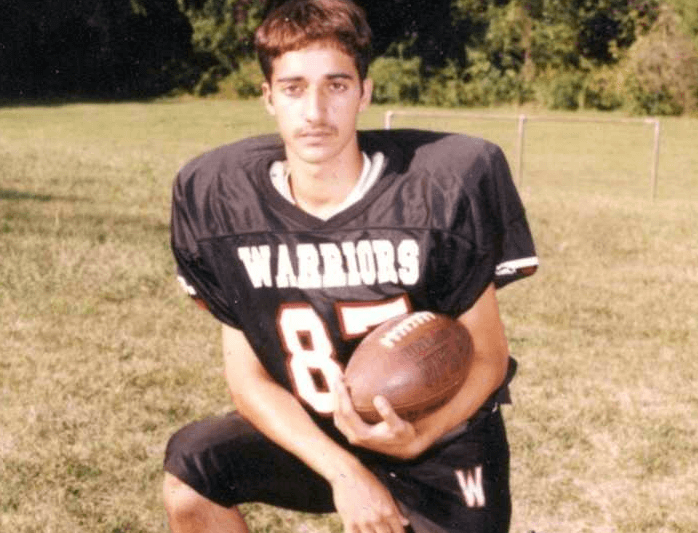Serial Recap: Episode 12, What We Know


At the end of this week’s Serial, the very last episode of this first season, Sarah Koenig plays us a bit of tape of Adnan. They’d been talking about how to end the show. What should she say? Did he do it, or not? “I think you should go down the middle,” he tells her. “I don’t really think you should take a side.” Koenig thanks Adnan, but assures us—her dear listeners, her loyal fan base, the people that made Serial the most popular podcast in the country, who funded another season of the show in a few days, the people who’ve turned what’s basically a mystery radio show into a national obsession in the year 2014 (about 80 years after anyone would have that that was possible)—that she is going to take a side, that she couldn’t leave us without a verdict. And then, she… sort of doesn’t take a side.
Legally, she says, she just doesn’t think there’s enough evidence to convict Adnan. If she was a juror, she’d vote to acquit. What real, factual evidence is there? After a year of investigating, she’s not much further than the Baltimore PD got in a few weeks. There’s Jay’s confession, backed up by the fact that he knew where Hae’s car was. And… that’s it. The call log from Adnan’s phone is full of conflicting evidence and doesn’t really seem to back up the state’s case, something we (yet again) explored in this week’s episode. Just as an aside, let me say how colossally boring I found every second of discussion of the call log. It was unbearable for me, it made me feel like getting up to take a walk, like I was stuck doing homework I didn’t understand and couldn’t bear. So, I guess what I’m saying is thank you, Sarah Koenig, for making me realize that I made the right decision not to finish that application to law school.
So, again, at the end of the day, Jay’s testimony is literally all of the actual, hard evidence connecting Adnan to the murder of Hae Min Lee. You’ll notice, if you look closely, that in fact it doesn’t involve Adnan at all. It involves Jay.
But, still, says Koenig, she couldn’t really swear that Adnan is innocent. A little more damning, she says, “Even if, in my heart of hearts, I think Adnan killed Hae, I still have to acquit. That’s what required of jurors.” To which I say WHAT THE HOLY FUCK ARE YOU TALKING ABOUT? If you’ve been investigating this murder for a year and you think “in your heart of hearts” that this guy is guilty, that’s a pretty big thing to just dangle out there like that.
Sigh. I mean what did we expect? That This American Life was going to solve a murder? It says something about 21st Century America, and especially the parts of it that obsess about podcasts (so the educated, liberal parts) that we have more faith in public radio than in professional murder-solvers (i.e., the police). I mean, innocent people go to jail all the time! Everyone knows the police are racist and lazy! I’m sure if we put some of that good old Northeastern liberal effort into it, we could have this whole thing cleared up in 12 episodes! This week, Koenig basically admits to thinking just that. “When Rabia first told me about Adnan’s case, certainty, one way or the other, seemed so attainable,” she said. “We just needed to get the right documents, spend enough time, talk to the right people, find his alibi, and then I did find Asia, and she was real, and she remembered, and we all thought, How hard could this possibly be?” As it turns out, it was extremely hard. But maybe it was just this case, maybe Koenig really could have solved other murders. All the experts she talked to assured her that this case was uniquely complex, with an unusually large number of unanswered questions. Then again, those experts, who usually lead relatively unglamorous lives I think we could all agree, were talking to an excited reporter, working on national obsession Serial, so you’ve got to wonder if there wasn’t some kind of Schrödinger’s cat situation going on. Looking at this changed it, especially for this show.
This episode wasn’t all wrap up. There was some genuinely interesting new info, coming from three totally new characters. First, there was Don, Hae’s new boyfriend, the guy she was seeing when she disappeared. He finally talked to Koenig on the record, but bizarrely refused to have his voice used, though she does recount several direct quotes from him. He tells us that Hae was supposed to spend the entire day of her disappearance with him, that she’d begged him to call the school and pretend to be someone important to get her excused from class. It’s like something from Ferris Bueller’s Day Off—they could have spent the day running around together being silly. Instead, he felt like she should be responsible, and go to school, and told her that, only to have her go missing. Somehow that really hit me in the gut, and I imagined how guilty he must have felt. Of course you’d remember it super clearly, I thought, if someone you cared about died that day, and you’d just constantly be running over all the little bits of it; if only I’d done this or said that, maybe she’d still be alive. I mean, I have those thoughts around my tiny daily melodramas like just missing the subway (if only I hadn’t checked my scarf one last time!), so I can only imagine how intense they are in something as tragic as this.
The very next thought I had was how clearly this contrasts with Adnan, who to this day can’t account for his movements on the day of Hae’s disappearance. It was the first time I really, truly felt like something in his account was off. I mean, she was your high school sweetheart, not just some girl you were dating you could barely stand, and she disappears, and you barely notice?
Other revelations came from Josh, a co-worker of Jay’s at the porn video store where he worked. He told us about how terrified Jay was on the night the cops finally came for him, February 27th. He was “frightened out of his mind,” Josh said, “and not of the police—they were a secondary fear. He was afraid of going to jail, but not like he was afraid of… Adman, is I guess how you say his name?” But, actually, Jay never said the name “Adnan” or “Adman” or anything else to Josh. He just said he was afraid of “people.” Josh, as it turns out, binge listened to the entire run of Serial before contacting Koenig, and his memories are mixed up with the show. Referring to the person Jay was afraid of as “Adnan” even though he never actually heard his name seems to be just the tip of the iceberg. Did he say this guy he was afraid of was Pakistani, Koenig wonders. “Oh yeah!” Josh immediately shoots back. “He said he was Middle Eastern, sure.” Well, did he really, or do you just know that from the show? In a broader way, it’s sort of weird that Jay wasn’t freaking out about this until the day the cops came to get him, a month and a half after the murder.
Finally, there’s one more character: a serial killer with three names! Ronald Lee Moore, a serial killer in Maryland at the time of Hae’s disappearance. The Baltimore PD say he was very active during the times he was out of prison, committing rape and murder and burglary. It turns out he’d been released from prison on January 1, 1999, less than two weeks before Hae’s disappearance. They like him for a murder that happened in December of that year. The Innocence Project is pegging a petition to have DNA tests run on swabs of Hae’s body and material that was found under her fingernails which has never been tested on the possibility that Moore might be the killer.
There was lots more this week. Maybe there really was a payphone at Best Buy after all! Maybe Jay and Adnan are both lying about what they were up to earlier in the day, and were buying drugs or meeting with some shady times in downtown Baltimore? The Nisha call really could have been a butt dial, according to an AT&T service agreement Serial dug up from 1999. On and on, a flurry of minutiae.
I’ve been thinking of Thomas Pynchon’s The Crying of Lot 49 a lot lately. With apologies to the Pynchon scholars out there, I’ll say it chronicles one woman’s quest to find meaning, to solve a case, and quickly descends into an avalanche of signifiers which may add up to a vast conspiracy, or to nothing. “Or you are hallucinating it,” Pynchon writes, relating the inner monologue of his central character, Oedipa Maas. “Or a plot has been mounted against you, so expensive and elaborate, involving items like the forging of stamps and ancient books, constant surveillance of your movements, planting of post horn images all over San Francisco, bribing of librarians, hiring of professional actors and Pierce Inverarity only knows what-all besides… Or you are fantasying some such plot, in which case you are a nut, Oedipa, out of your skull.”
So, what is it? Is Adnan the victim of some extremely unlikely bad luck? Was he mixed up in some vast criminal plot that to this day he can’t talk about? Or did he do it, and he’s lying? Is Jay lying, is Asia, is Nisha? Or all we all just out of our skulls with paranoia? For my part, I’d vote to acquit Adnan. But I don’t know that I’d swear he’s innocent.
You might also like 




















